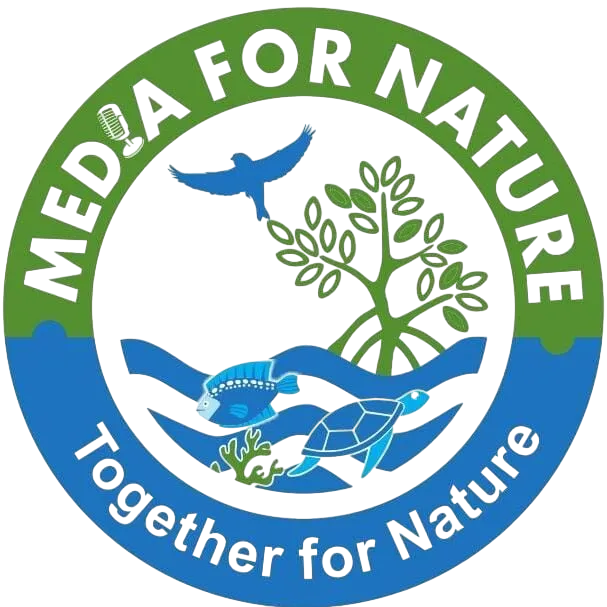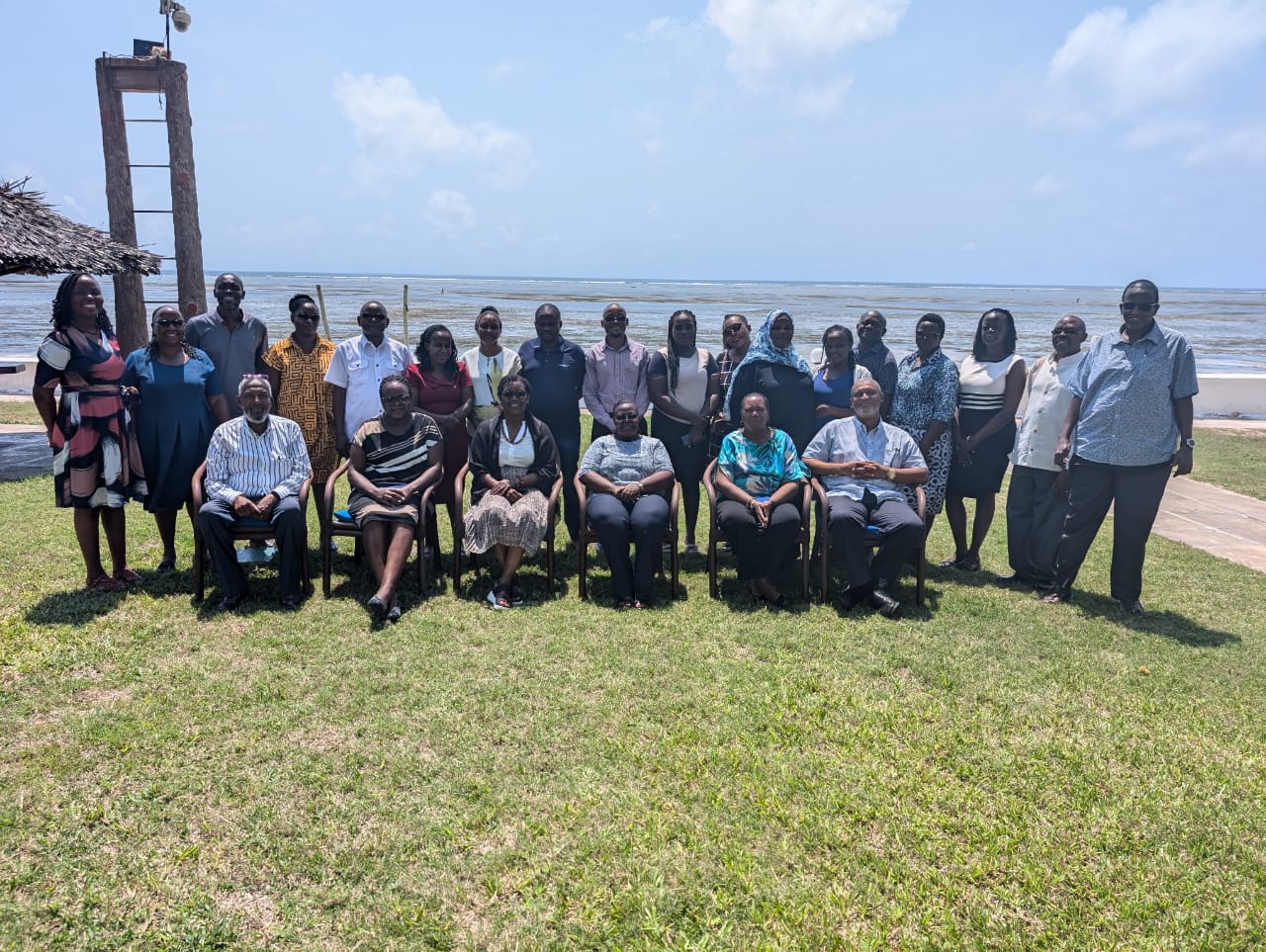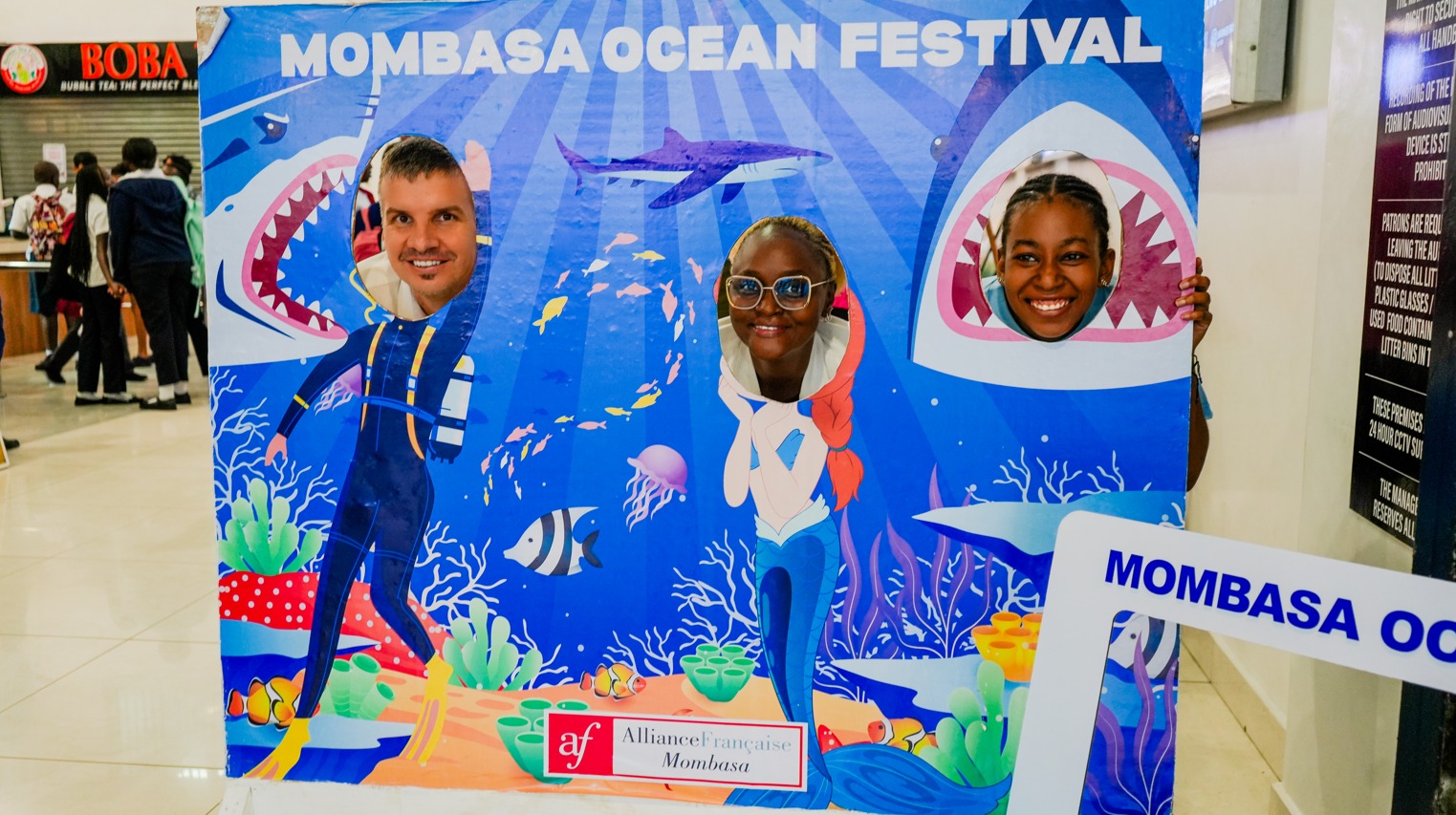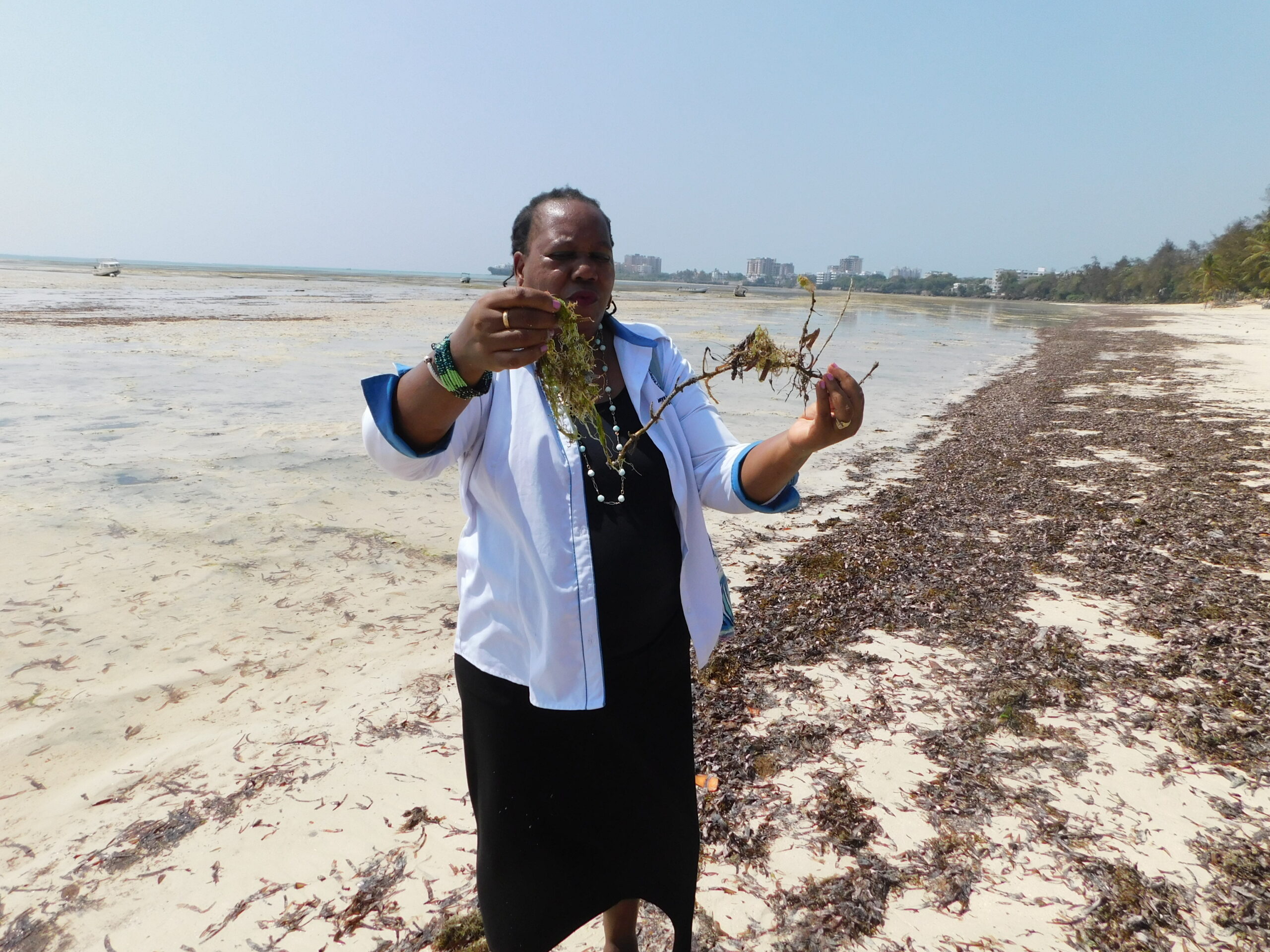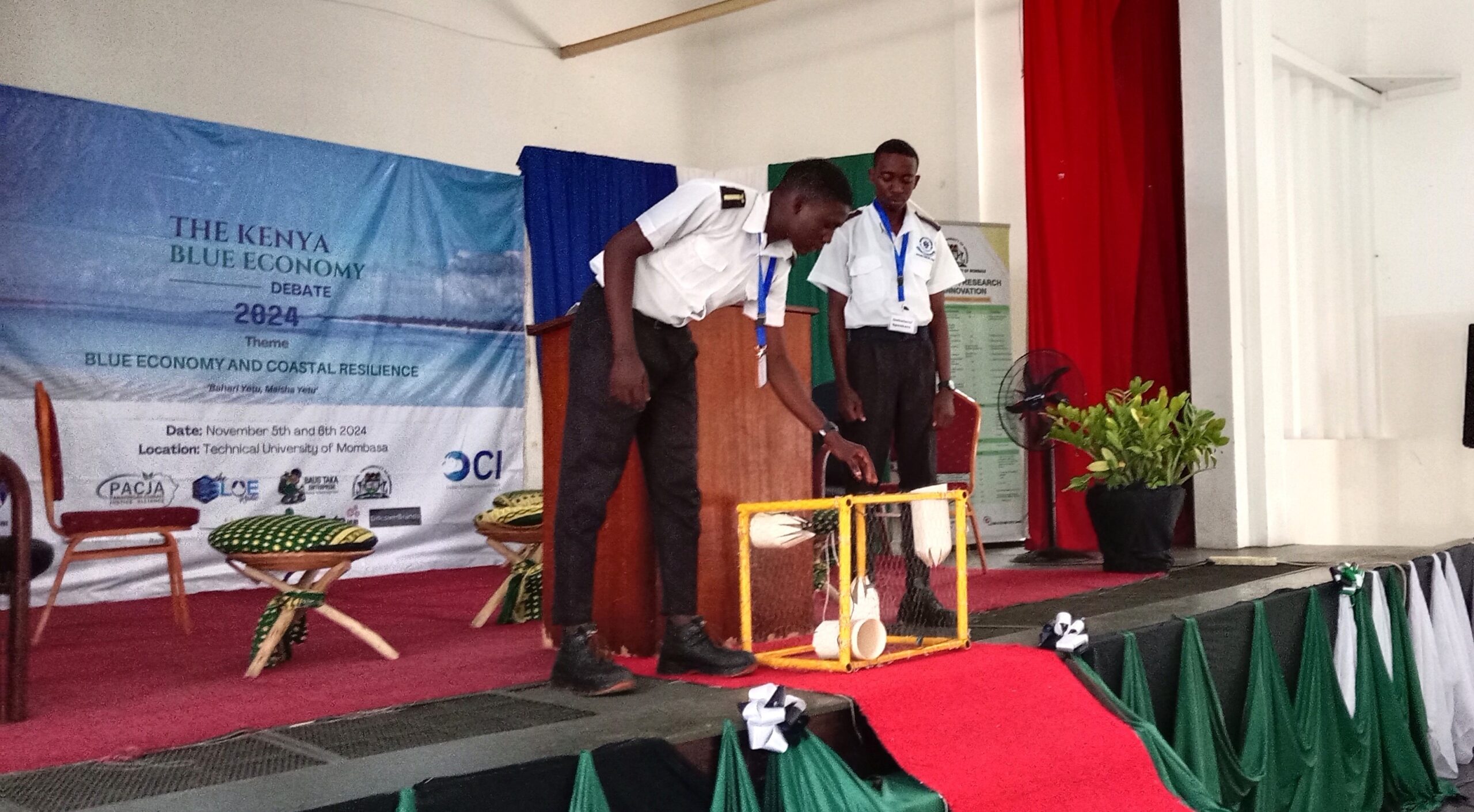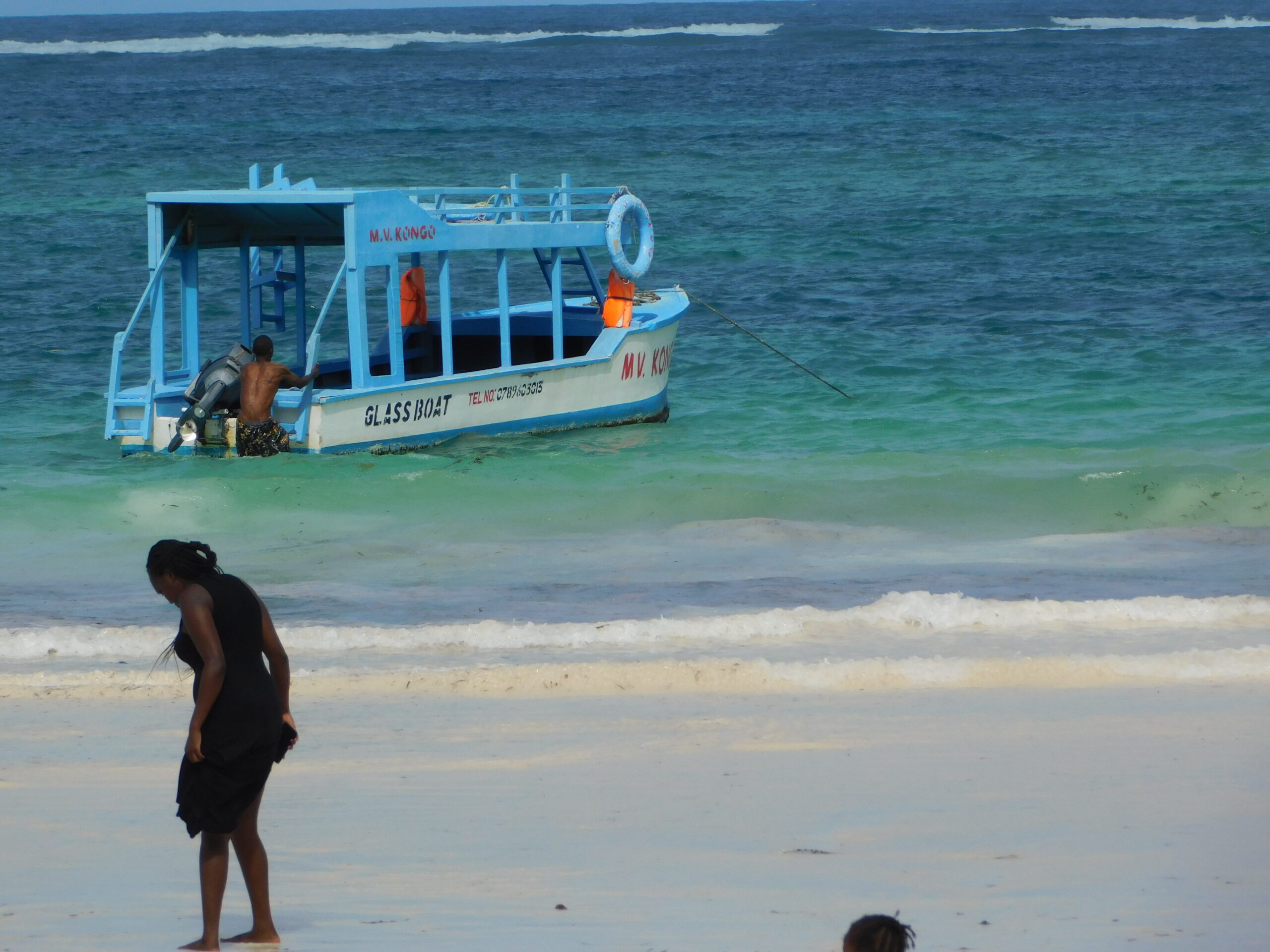Stakeholders who attended the STEM Education and Training Policy Workshop to review and enhance the current policy at the North Coast Hotel, Kilifi. Photo by Dr. Jacqueline Uku.
Efforts to promote ocean literacy are being ramped up to help the public, especially youth, understand the vast opportunities within the blue economy.
From Media outlets like Blue Radio in Mombasa, an innovative audiovisual radio station whose mission is to bridge the gap between the youth and opportunities within the blue economy, fostering awareness and preservation of marine ecosystems, to clubs such as the Wildlife Clubs of Kenya which are equipping teachers with ocean-related content, supported by the Kenya Marine and Fisheries Research Institute (KMFRI).
Speaking to Media for Nature at a recently held workshop that brought together various stakeholders to contribute insights on the blue economy and ocean-related topics for Kenya’s draft STEM policy, KMFRI Principal Research Scientist, Dr. Jacqueline Uku, said KMFRI has also established an Ocean Literacy Centre, where they host children during special celebrations to teach them about the ocean, monthly Science Cafés which are held to engage the general public, simplifying scientific concepts and fostering greater understanding of marine science.
To bolster these efforts, KMFRI, with support from the Kenya Marine Fisheries Socioeconomic Development Project (KEMFSED), organized a workshop where technical experts and key stakeholders convened. The discussions focused on integrating ocean and marine literacy into the STEM policy and curriculum, with a particular emphasis on aligning these elements with the national STEM strategy and the blue economy.
The Science, Technology, Engineering, and Mathematics (STEM) policy is being developed by the Ministry of Education. Dr. Uku emphasized the need for ocean education in Kenya’s curriculum.
“What Kenyans don’t know is that the ocean is half of Kenya’s land mass. Even though we see water, the ocean space is constitutionally considered to be land and part of Kenya’s territory up to a certain extent. However, in our education curriculum, there is very little about the ocean. So there’s a sense in which Kenyans are ocean blind,” Dr. Uku said.
She explained that current school textbooks focus on wildlife and the Big Five animals but lack content on marine life such as dolphins, sharks, and whales. Beyond turtles, students only learn about the fish they see on their plates.
“As stakeholders in the ocean sector, we want to enhance ocean learning in the Kenyan Competency-Based Curriculum (CBC) and ensure it is integrated at all levels of education within the STEM policy. Because there are many opportunities, including maritime careers and entrepreneurship, which can create jobs for young people,” she added.
Dr. Uku stressed the importance of introducing ocean-related content into the curriculum early so that students can make informed career choices in the ocean space.
“We are keen to ensure that, moving forward, Kenyans have ocean content in their education. We want young students to start learning about the ocean from a young age and eventually pursue careers in the ocean space,” she said.
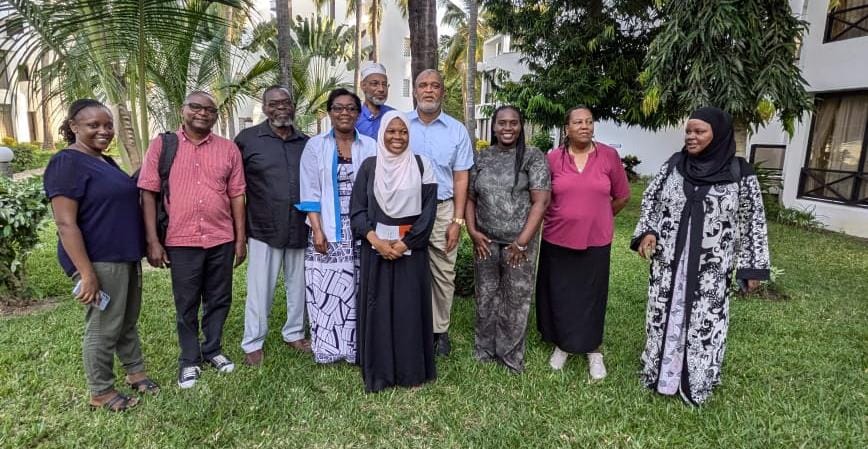
Dr. Mariam Swaleh, an environmental chemist and Assistant Registrar for Research and Grants at the Technical University of Mombasa, was among the attendees. Her work focuses on ocean-based climate solutions, sustainable wastewater treatment, and promoting the blue economy in Kenya.
She pointed out that Kenya has not given enough attention to the blue economy.
“There is still a big gap, because, as of 2024, stakeholders are still discussing how the blue economy can be integrated into the STEM policy,” Dr. Swaleh said.
She emphasized that children should learn about the blue economy from a young age.
“When kids understand the blue economy at the nursery level, by the time they are 15, they will know what the ocean is and the opportunities it offers,” she said.
Dr. Swaleh also highlighted the job opportunities in the blue economy, noting that it is much broader than just fishing. She said ocean literacy, when integrated into the curriculum, will help young people understand the full scope of the blue economy.
Julia Mumbe Kyalo is the administrator and the marketing strategist at Sea Moss Corporation, a company that collaborates with women seaweed farmers, adding value to their products and exporting seaweed in Kwale County.
She was among those who attended the workshop, where she emphasized the importance of incorporating blue economy initiatives, given the numerous opportunities within the sector.
“The blue economy has been overlooked for too long, and the time has come to discuss it more seriously,” she said. “People shouldn’t just view it as a matter of leisure but also as an opportunity for creating jobs.”
Dr. Uku said the way forward is to finalize the draft policy so that it can be adopted as a national policy. After that, an implementation plan will be developed to integrate it into the Competency-Based Curriculum (CBC), universities, and even the wider society through effective communication.
“With greater support and coordination from the government, we can achieve much more,” she concluded.
The workshop was attended by stakeholders from various sectors, including the Ministry of Education, KMFRI, private sector entrepreneurs in the blue economy, artists, universities, and advocacy groups from Mombasa County.
